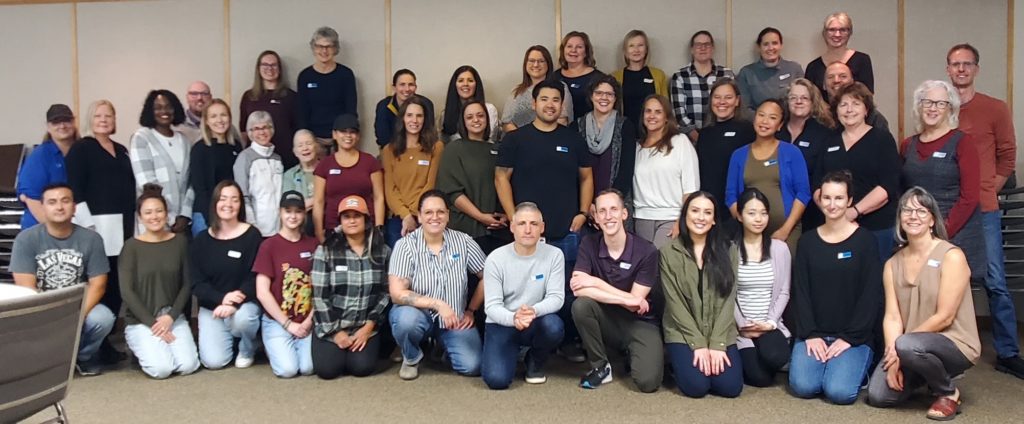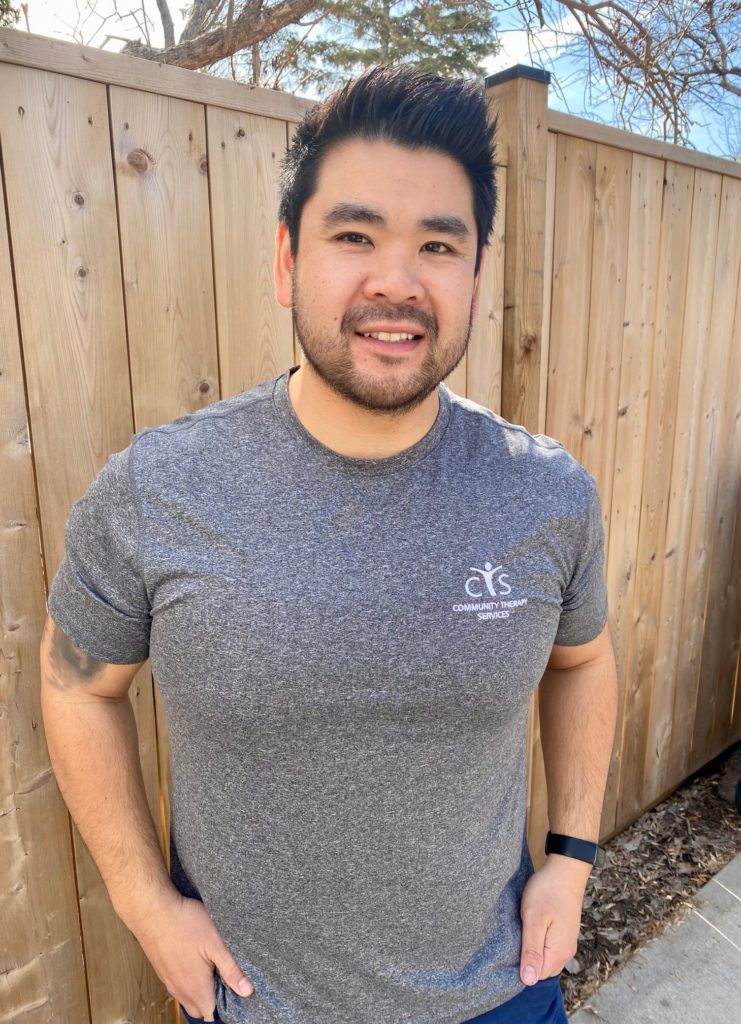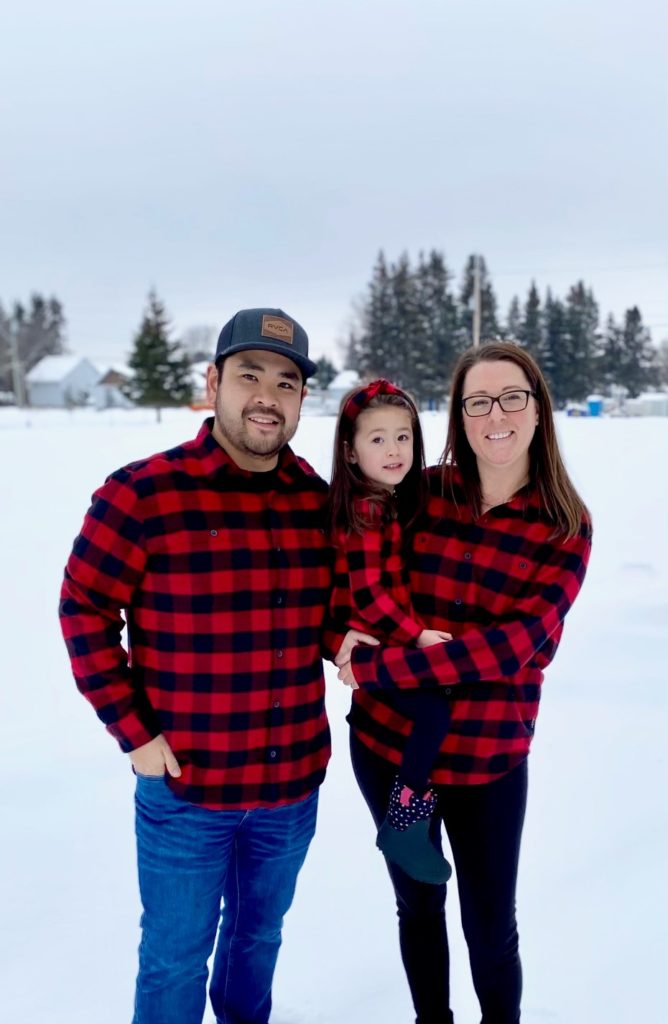When you meet Andrew in person, it’s easy to imagine how he ended up a healthcare professional.
Kind, gentle, well-spoken and compassionate, Andrew S. is an Occupational Therapist (OT) with Community Therapy Services (CTS), a private, non profit agency that provides OT and physiotherapy (PT) services to meet the rehabilitation service needs of individuals, care providers, and care organizations in Manitoba. Andrew has worked as an OT for more than 12 years in a variety of settings, including pediatrics, acute care, neurology and stroke rehabilitation, and the last decade with CTS.
“I always knew I wanted to help people and make a difference in others’ lives, and I learned that OT had among the highest job satisfaction ratings of the health-care professions,” says Andrew.
“OT has provided so many opportunities for me to make a difference. I get to work together with clients to increase their independence and improve their overall quality of life. What could be more rewarding than that?”
A mentor told Andrew early on that he should try a variety of professional settings and find his niche. Within CTS, Andrew receives referrals from within the WRHA directly from the Home Care program, hospitals, physicians and other community programs.
Among the clients he carries on his caseload, he has carved out a unique space, specializing in consulting with and supporting clients living with ALS (amyotrophic lateral sclerosis), also known as Lou Gehrig’s disease.
“ALS is a devastating diagnosis for individuals and their loved ones because it’s a progressive disease that affects all aspects of life – physical, cognitive and emotional – and there’s no known cure for it. Working with clients in their home environment is a very collaborative process, and when we work with people in their own homes, there is a noticeable power shift. They feel a sense of control over their lives as compared to if they were in hospital, where they may feel vulnerable and uncomfortable. They don’t feel in control. It’s our job to help clients achieve their personalized goals and make the best of their situation.”
Andrew performs functional assessments, which can include the client’s activities of daily living (ADLs), mobility, transfers, cognition, and complex wheelchair systems. He provides recommendations for home accessibility, activity adaptations, and long-term care planning to help improve a client’s living situation.

Photo: Community Therapy Services team.
OT’s assess and address the mental and physical aspects of client illness and injuries:
- Personal care: showering, feeding, dressing, medication management, etc.
- Accessibility: does their current living situation meet their needs or are they exploring options? do they require home adaptations such as a mechanical lift?
- Mobility: what is their level of mobility? are they using a walking aid or wheelchair? What type of wheelchair do they use (manual/powered)? is it meeting their needs?
- Home Care: are they receiving home care already? is the level of care appropriate?
- Level of cognition: are they displaying deficits like memory loss? can we provide them with equipment or techniques to mitigate these losses?
- Mental health: how are they coping? can we connect them with counselling to support their emotional well-being?
- Caregivers: what does the client’s caregiver(s) need in terms of support and resources? do they need guidance navigating the complex system?
“Throughout the healthcare system, we hear a lot about the value of aging in place. Accommodating people at home is an intensive process but it’s important to their dignity, safety, comfort and to keeping them out of hospital. We know how much it costs to care for an individual in hospital, and how long-term stays can block patient flow. OT’s provide impactful and effective interventions that help to improve the overall efficiency of the system.”
OT’s develop individualized care plans, rounded out by a lot of listening and counselling. Andrew says it can be challenging to process it all.
“There are some tough cases, especially because we often get to know our clients and their family members well, so we connect with and care about them. We are lucky in CTS because there are 45 OT’s and PT’s (physiotherapists) to bounce stuff off and we can help one another work through those tough cases. We are a tight-knit group and there is very little turnover. Plus, my wife Julie is an OT, so we give ourselves 10 minutes at the end of each day to debrief, share ideas and insights, confidentially, of course, and we get some things off our chests.”
Andrew and Julie both graduated in 2012 from the Master of Occupational Therapy program at the University of Manitoba, and they were immediately recruited by the Saskatoon Health Region. They moved back to Winnipeg in 2015.
“My wife works in one of the WRHA’s community rehabilitation programs. She is from Carlyle, Saskatchewan, and I grew up in Northwestern Ontario, so we decided to make Winnipeg home so it would be middle ground between both our families.”
Together, the couple has travelled extensively and visited many countries, a love which they both inherited from travel-loving parents.
Andrew’s mother and father emigrated from Laos to Canada in 1979, and made Fort Frances, Ontario, their home. His dad is a chemical engineer who works in the pulp and paper mill industry, and for the past 10+ years, he has been crossing the bridge into International Falls, Minnesota, to work at the mill there. His mom is a retired hospital dietary aide who still works casual.
“Fort Frances is a naturally beautiful place, and I fell in love with fishing and camping, hiking, basically all aspects of outdoor living there. Maybe when I retire from Occupational Therapy, I will go work at Cabela’s or something. That seems like it would suit me just fine.”
Andrew and Julie have two young children.

Andrew is a dedicated MAHCP activist and joined our team of volunteer Member Advocates in 2023 to support his colleagues in Community Therapy Services. He has also twice served as a volunteer member of the CTS Bargaining Committee.


